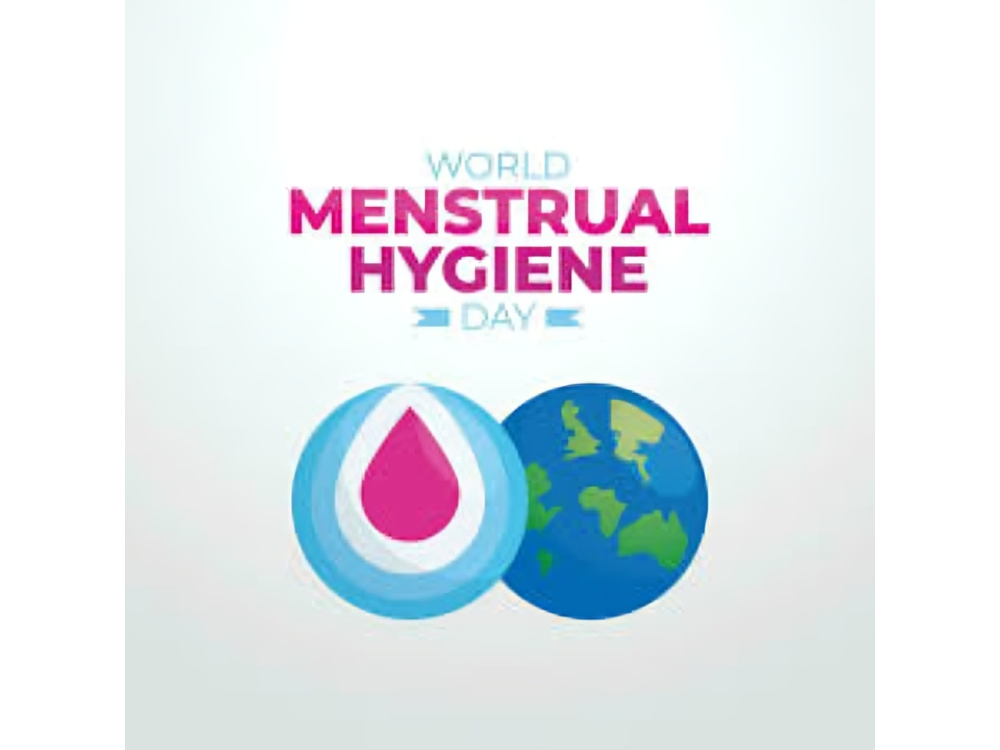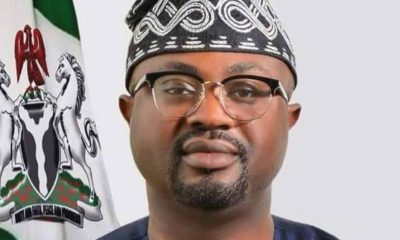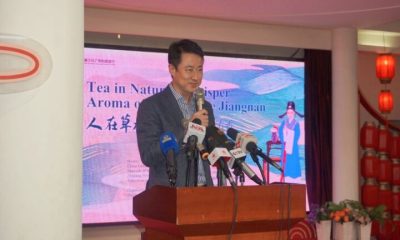Health
World Immunization Week: UNICEF Organizes Media Dialogue for Journalists
From Mike Tayese, Yenagoa
As part of activities marking the World Immunization Week 2025, the United Nations Children’s Fund (UNICEF) has organized a two day Media Dialogue with journalists across the 12 states cover by their operations.
The media dialogue by UNICEF in collaboration with Broadcasting Corporation of Abia state took place at Fidelma Hotel Enugu state had in attendant media practitioners from Abia, Akwa Ibom, Anambra, Bayelsa, Cross river, Benue, Ebonyi, Enugu, Rivers, Delta, Imo and Kogi states.
In her opening remark, Chief of Field Office UNICEF, Enugu, Juliet Chiluwe, at the Two-Day Multi Zonal Media Dialogue on 2025 World Immunization Week (WIW), Heralding the Theme:: ‘Immunization for All is Humanly Possible’ said the occasion was to foster dialogue that will help promote and provide quality immunization services to everyone, especially the children we serve.
“Today kick-starts the WIW commemoration across the world and UNICEF joins efforts with health care providers and governments to promote the values of immunization services as should, which entails getting to the last mile.
“UNICEF uses this opportunity to emphasize that Vaccines are proof that less disease, more life is possible when we put our minds to it. It’s time to show the world that ‘Immunization for All is Humanly Possible’. Vaccines remain one of humanity’s greatest achievements and over the last 50 years, essential vaccines have saved at least 154 million lives. That’s 6 lives a minute, every day, for five decades.
“In 2025, as we approach World Immunization Week (WIW) 2025, themed, “Immunization for All is Humanly Possible”, it’s essential to underscore the continued relevance of this global observance. The theme reaffirms the feasibility and necessity of protecting everyone, from newborns to the elderly, against vaccine-preventable diseases, through inclusive and equitable immunization services.
“In all these years UNICEF, in partnership with the media as a reliable ally and other development partners, continued to provide strategic and operational support in the following areas: Advocacy, Communication, and Social Mobilization (ACSM)
Logistics and Cold Chain Support:
Infrastructure Strengthening such as establishment of oxygen gas plants to strengthen health systems in states Routine Immunization Support”.
Juliet commended the contributions from state governments that compliments UNICEF’s efforts and urge them not relent in this partnership but build momentum on progress made so far by continuing to provide budgetary allocations to ensure they get to the last mile where every eligible child gets lifesaving vaccines to survive and reach their full potentials.
Health
Stakeholders Call for Better Menstrual Hygiene To Boost Health

Stakeholders have stressed the need for increased awareness and improved practices around menstrual hygiene, particularly to support better health outcomes and dignity for girls in underserved communities.
They made the call on Wednesday in Abuja ahead of the 2025 Menstrual Hygiene Day, commemorated globally every May 28 to address inequalities in menstrual health and hygiene.
The event was organised by Tabitha Cumi Foundation (TCF) under its Always Keeping Girls in School (AKGIS) project, with support from Charities Aid Foundation (CAF America).
Mrs Tayo Erinle, Executive Director of TCF, said menstrual hygiene remained a critical yet often overlooked aspect of reproductive health, especially among adolescent girls.
“Many girls live in households where no one provides sanitary pads or pays attention to that part of their lives.
“It happens monthly, and every girl deserves dignity and support,” she said.
Erinle added that more than 1,600 marginalised girls across 32 junior secondary schools in the FCT, Lagos, and Benue states were empowered through puberty education and menstrual hygiene management under the AKGIS project.
She said beneficiaries also received a one-year supply of Always sanitary pads and emergency kits.
“The project has boosted the girls’ confidence.
“Menstruation was once shrouded in secrecy, stigma, and confusion for many. Now, with access to correct information and education, they feel empowered,” she added.
Dr Adedolapo Fasawe, Mandate Secretary for the Health Services and Environment Secretariat, emphasised the importance of educating youths on reproductive health.
Represented by Dr Ruqayya Wamakko, Executive Secretary of the FCT Primary Health Care Board, she called for more sensitisation efforts to encourage young people to use health services in primary health centres.
“We give health talks, visit schools, form school clubs, and teach students how to care for themselves, maintain personal and menstrual hygiene, and stay safe,” she noted.
Mrs Nwakonye Onyirechi, Assistant Chief Investigative Officer in the Women and Children Department of the National Human Rights Commission (NHRC), reiterated the commission’s commitment to protecting the rights of the girl child.
“We go to schools to sensitise girls to their rights and encourage them to speak up when their rights are violated,” she said.
Dr Safiya Tamanuwa, Deputy Director of the Placement and Gender Unit at the Universal Basic Education Commission (UBEC), commended TCF for its support toward improving the health and well-being of schoolgirls.
Highlights of the event included the distribution of sanitary pads and kits, a literary presentation, and expert-led health talks.(NAN)
Health
Group urges Nigerians to embrace healthy habits to prevent diseases

The Society of Lifestyle Medicine of Nigeria (SOLONg) has advised Nigerians to embrace healthy preventive lifestyle habits to prevent the root causes of chronic and lifestyle-related diseases.
The President of SOLONg, Dr Moyosore Makinde, gave the advice in an interview in commemoration of the “Global Lifestyle Medicine Week” on Tuesday in Lagos.
NAN reports that the Global Lifestyle Medicine Week, taking place from May 18 to May 24, 2025, has the theme “Celebrating Healthy Habits: Inspire Change with D.
R.E.A.M.S.”Makinde, also an International Board-certified Lifestyle Medicine Physician, said the week was dedicated to raising awareness about the transformative power of lifestyle medicine in improving health outcomes and reducing the burden of chronic diseases worldwide.
According to her, lifestyle medicine empowers people to live healthier, happier and longer lives.
She explained that the D.R.E.A.M.S. acronym highlighted the six key pillars of lifestyle medicine that guide individuals toward healthier lives namely: Predominantly plant-based Diets, positive Relationships or social connections, Exercise, Avoidance of toxic substances, Mental wellness and stress management, and restorative Sleep.
She said that these pillars had been proven by scientific research to not only manage and prevent chronic diseases like coronary heart disease, diabetes, dementia and Alzheimer’s but also to promote a more sustainable and harmonious relationship with ourselves and with our planet.
Makinde added that it contributed to planetary health and the stability of our ecosystem.
“SOLONg is proud to announce its participation in Global Lifestyle Medicine Week, taking place from May 18 to May 24, 2025.
“Scientific studies, including numerous randomised clinical trials and longitudinal studies, have consistently shown the remarkable benefits of lifestyle interventions in reducing the incidence of chronic conditions.
“Additionally, these healthy habits play a pivotal role in strengthening resilience against infectious diseases.
“The ongoing impact of several pandemics has underscored the importance of adopting healthy behaviours, as poor lifestyle choices have been associated with worse disease severity and slower recovery times,” she said.
Contributing, the General Secretary of SOLONg, Dr Chika Anozie, said that Global Lifestyle Medicine Week aimed to foster a community of like-minded individuals and healthcare professionals committed to lifestyle medicine.
Anozie, also a Family Physician, said that SOLONg would organise various activities to mark the week, including a Webinars and educational workshops on lifestyle medicine topics.
She added that there would be courtesy visits and community outreach programmes promoting healthy habits, as well as social media campaigns sharing lifestyle medicine tips and resources.
“As we observe Global Lifestyle Medicine Week, it is clear that the need for Lifestyle Medicine is greater than ever.
“This is a clarion call for the government to create policies that promote healthy lifestyle practices while restricting behaviours that contribute to disease.
“We urge medical institutions to prioritise the accreditation of Lifestyle Medicine programs at both undergraduate and postgraduate levels.
“It is equally important that health professionals receive the proper training to effectively communicate these life-saving messages to the public.
“The Society encourages individuals to embrace the principles of healthy living, which are not only lifechanging but also long-lasting,” she said.(NAN)
Health
NAFDAC Clarifies Sachet Alcohol Ban Timeline

The National Agency for Food and Drug Administration and Control (NAFDAC) has clarified its stance regarding the nationwide ban on sachet alcohol.
Mr Kenneth Azikiwe, Director of the FCT Directorate of the agency, in an interview on Monday in Abuja that the temporary lifting of the ban was only valid until Dec.
31, 2025.He emphasised that the recent ministerial lifting of the ban was not permanent and urged the public to disregard misinformation suggesting that the government had permanently lifted the restriction.
“There is a ministerial lifting on the ban of sachet alcohol, but it is only temporary and will be reviewed by Dec. 31, 2025.
“After this date, the full enforcement of the ban will commence.
“The minister granted this temporary relief to allow manufacturers and regulators time to collaborate and ensure a more structured and effective implementation of the ban,” Azikiwe stated.”
He highlighted NAFDAC’s ongoing efforts to sensitise the public across the country, noting that awareness campaigns had reached every state.
“We have sensitised distributors, and we’ve emphasised that alcohol should not be sold to individuals under the age of 18, which is also clearly indicated on product labels,” he added.
Azikiwe also commended the Distillers and Beverages Association of Nigeria (DIBAN) for supporting the awareness drive.
He reassured the public that NAFDAC remained fully committed to regulating alcohol consumption and reiterated that sachet alcohol products containing less than 200 milliliters would be phased out after Dec. 2025.(NAN)




















